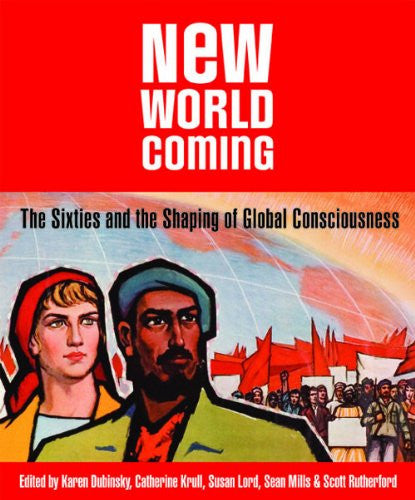-
New World Coming: The Sixties and the Shaping of Global Consciousness
Between The Lines / University of Toronto Press / Guernica
-
$23.69
-
is back-ordered. We will ship it separately in 10 to 15 days.
-
-
Description
PRAISE FOR NEW WORLD COMING New World Coming is a powerful contribution to the meaning of the sixties for today. Legacies of the sixties are all around us, from the participative democracy of Venezuelas Bolivarian revolution to the passionate 2008 presidential campaign of the Obama generation. Yet the sixties are remembered only narrowly, not as a unique worldwide rebellion against the global status quo. New World Coming enters the battlefield of memory against those who would discredit the legacy before it repeats. Tom Hayden, author, The Long Sixties: From 1960 to Barack Obama and Writings for a Democratic Society This volume provides useful steps to take us beyond stereotypes of the "excessive decade" and "idealisms" in order that we may delve into the contradictory richness of a decisive stage of the twentieth century, full of generative radicalisms and polarities. The historical undercurrents reach us today. Rafael Hernández, editor, Revista Temas (Havana) "This must-read eclectic collection of often pioneering articles provides a nuanced view of how the world was changing and how it was not in the 1960s. These highly readable articles, casting a critical eye on every corner of the globe, and every social movement, put the scholarly critical spin on The Times They Are a-Changin. " Alvin Finkel, Professor of History, Athabasca University, editor, Labour/Le Travail A groundbreaking contribution to our understanding of the culture and politics of the 1960s. Unlike most studies of the period, which focus on youth revolt, student unrest, and middle-class alienation within the United States, this collection follows a different pathtracing the many meanings of liberation from Mexican rockers complicating Cubas dominance in Latin American resistance movements to youth culture in Dakar to feminism in Palestine and Brazil. Patrice Petro, Professor of English and Film Studies, University of Wisconsin-Milwaukee There is a tendency among some historians to tame the sixties, to turn a series of world-spanning uprisings into a safe nostalgic soundtrack. New World Coming restores the radicalism of the sixties, a period that initiated battles over power and privilege that continue to be fought to this day. The book is a model of committed, incisive, readable, and relevant scholarship. Jeet Heer, journalist and historian " New World Coming is a major reinterpretation that redefines the sixties experience in a global context. Utilizing a rich, diverse, and impressive breadth of work that straddles the globe from Sarnia to Palestine and just about everywhere in between, the collection makes us rethink our most basic assumptions of place, space, and meaning when it comes to this evocative period in history. This is a significant contribution to the historiography of the time, and an important new departure in sixties studies that gives readers an original perspective." Dimitry Anastakis, Professor of History, Trent University, editor, The Sixties: Passion, Politics and Style "This collection of essays reminds us that the sixties were more than drugs and hippies. Contributors analyze and dissect the various meanings of this decade that still reverberates with us. This is definitely a book to possess for the richness of the contributions." Marcel Martel, Associate Professor of History, York University "Do you like your 'Sixties' hard-boiled or over easy; well-done or bleu ? No matter, the menu of this eclectic collection accommodates most tastes." Left History Karen Dubinsky is Professor in the Department of History at Queen's University. Catherine Krull is Associate Professor and Undergraduate Chair in the Department of Sociology at Queens University. Susan Lord is Associate Professor in the Department of Film and Media at Queens University. Sean Mills is a Postdoctoral Fellow in the Department of History at the University of Wisconsin-Madison. Scott Rutherford is a Ph

